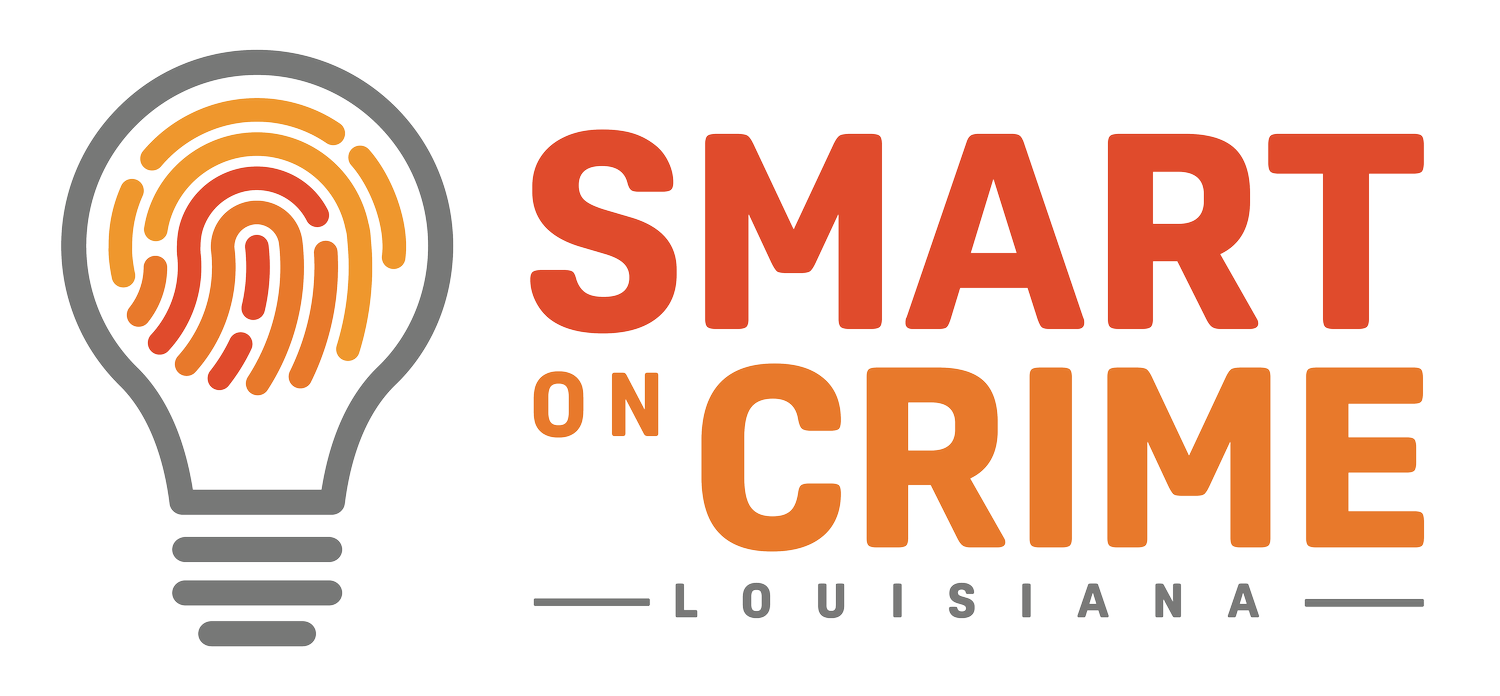Louisiana is Worried About Crime. Better Data Can Help.
The data shows that Louisianians are worried about crime. Polling indicates that, despite falling crime rates in major cities like New Orleans, residents still view crime as an urgent issue that the state needs to address. While data can provide a glimpse into the concerns of Louisiana, it can also offer a solution to those concerns. The consistent collection and use of accurate data can help law enforcement leverage resources to prevent crime before it happens.
In Smart on Crime Louisiana’s report, “The Future of Justice: a Conservative Vision to Enhance Public Safety in Louisiana,” attorney and scholar Jordan Richardson compared Louisiana’s data reporting procedures to those of other states. “In 2022, only 58% of law enforcement agencies in Louisiana submitted crime data to the FBI, and only 37% of these agencies provided a complete years’ worth of crime data. Although all of the major cities report to the FBI, only 151 of the 256 participating law enforcement agencies in Louisiana did so. As a result, 39 states and the District of Columbia surpassed Louisiana’s crime reporting rate.”
Jeff Asher, a crime data analyst based in New Orleans, also compared the way states publish crime data and categorized Louisiana as “heavily delayed” because data was not yet available through even 2023. The consequences of this approach were made obvious earlier this year, when New Orleans' failure to report crime data resulted in a reduction of federal funding for victims of crime. Police presence and federal and state funding cannot be directed to a problem that goes unreported.
Louisiana can strengthen its data reporting system using resources already available. Funding to law enforcement agencies and other authorities that manage vital crime data can be conditioned upon meeting data reporting requirements. Accurate and timely data is not optional—lives depend upon it. Identifying areas of need can also assist smaller departments that lack the technology and tools necessary to store and submit data from their precincts.
Louisiana’s Integrated Criminal Justice Information System Policy Board (ICJIS) was formed to strategize coordination between criminal justice information systems at every level of government. Recently, ICJIS has been in discussions regarding the state of crime data in Louisiana. The ICJIS and recently proposed bills like House Bill 23 are striving to update the methods used to share information. Much of what is done manually or by paper can be digitized and carried out electronically-increasing efficiency, timeliness, storage capacity, and accuracy.
Other states have taken great strides to create a collaboration between agencies so that shared data can be leveraged for good and gain community’s trust through transparency. Michigan, one of the top-performing states on Asher’s list, has recently incorporated a crime data dashboard. The periodically updated dashboard provides accessible and modern information about crime around the state.
Innovations like those recommended by ICJIS or the dashboard in Michigan are just a few of the many tools and practices available to empower law enforcement. For polling data to show that Louisianians are feeling hopeful about safety, the state must take the collection and reporting of crime data seriously and act swiftly.
